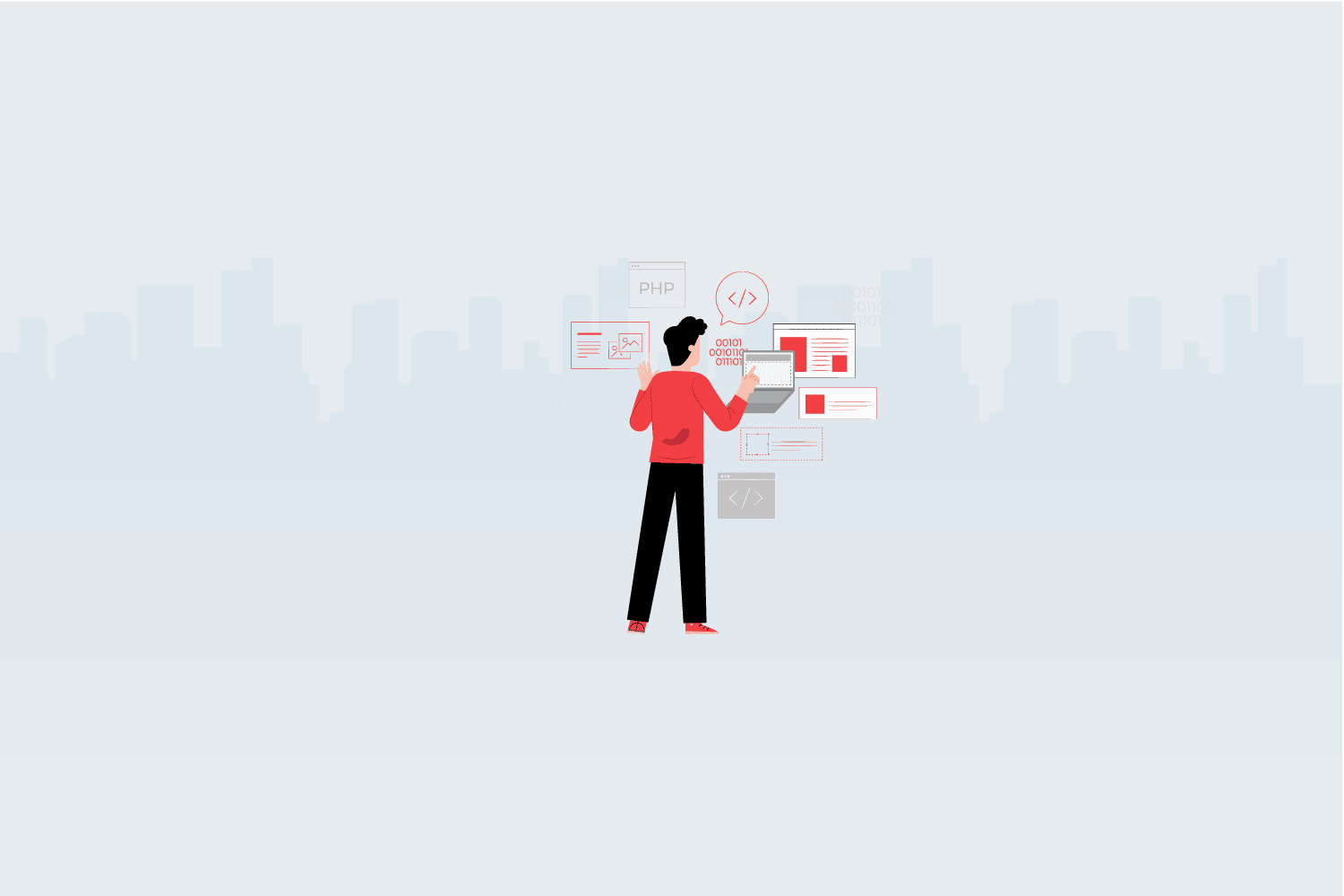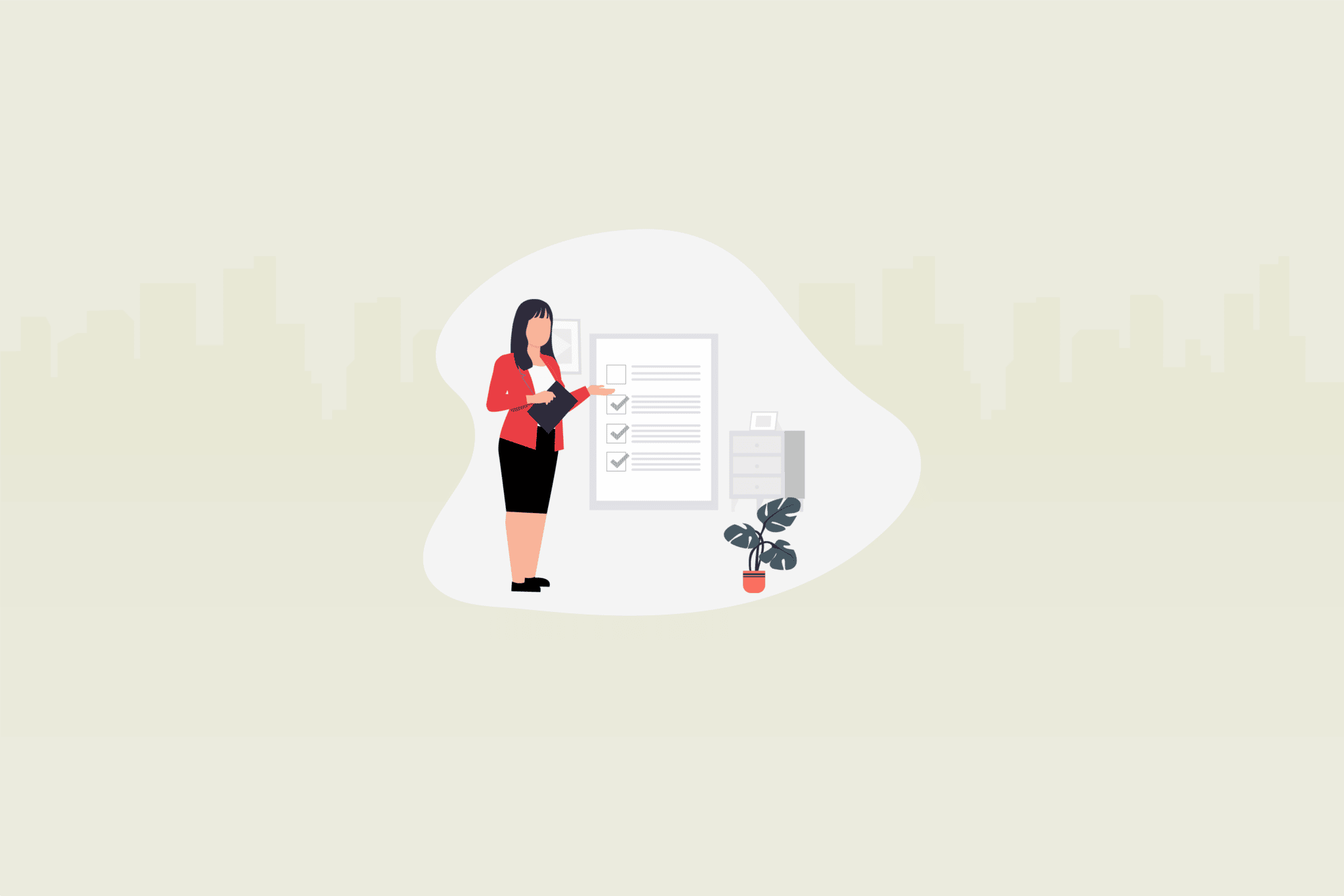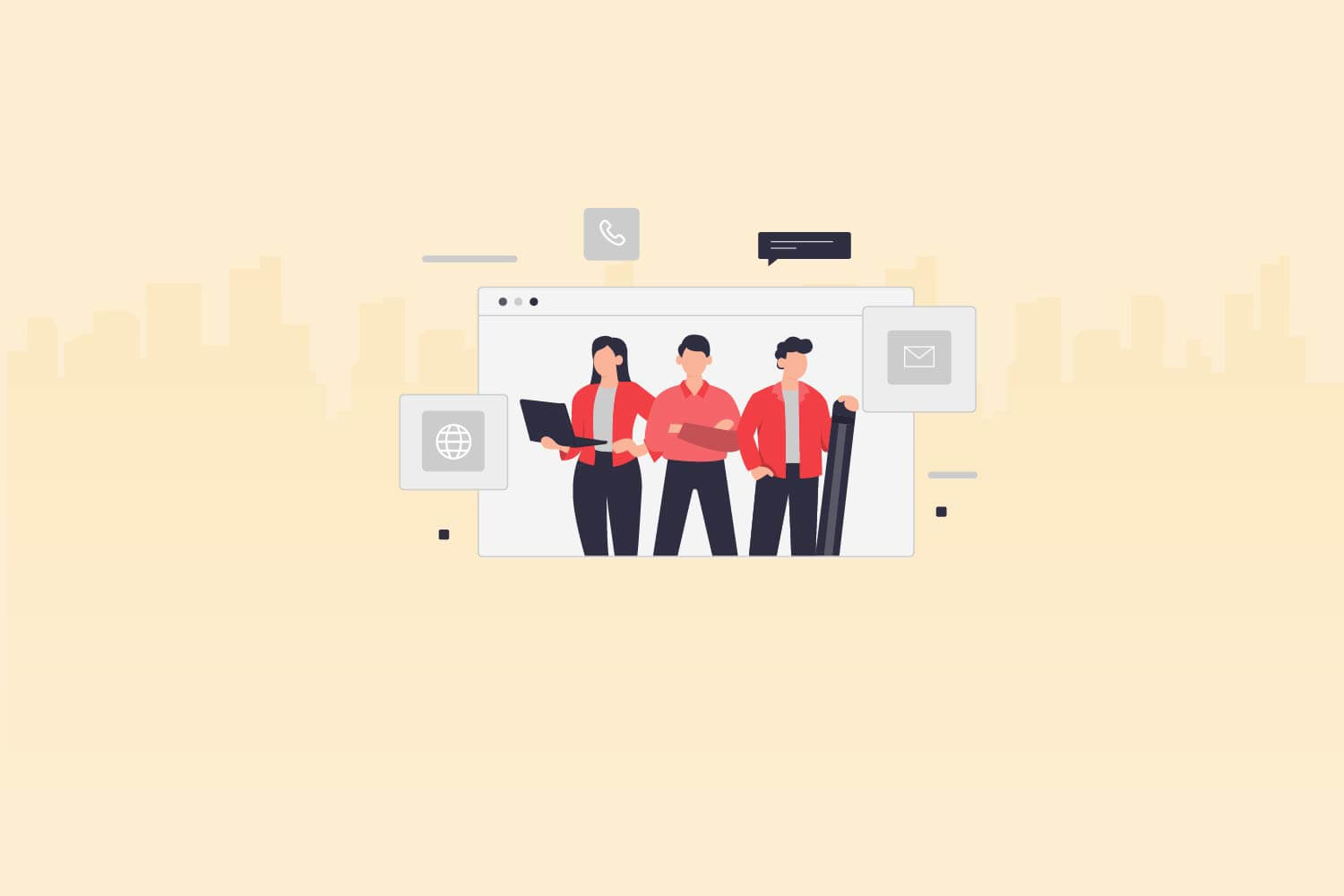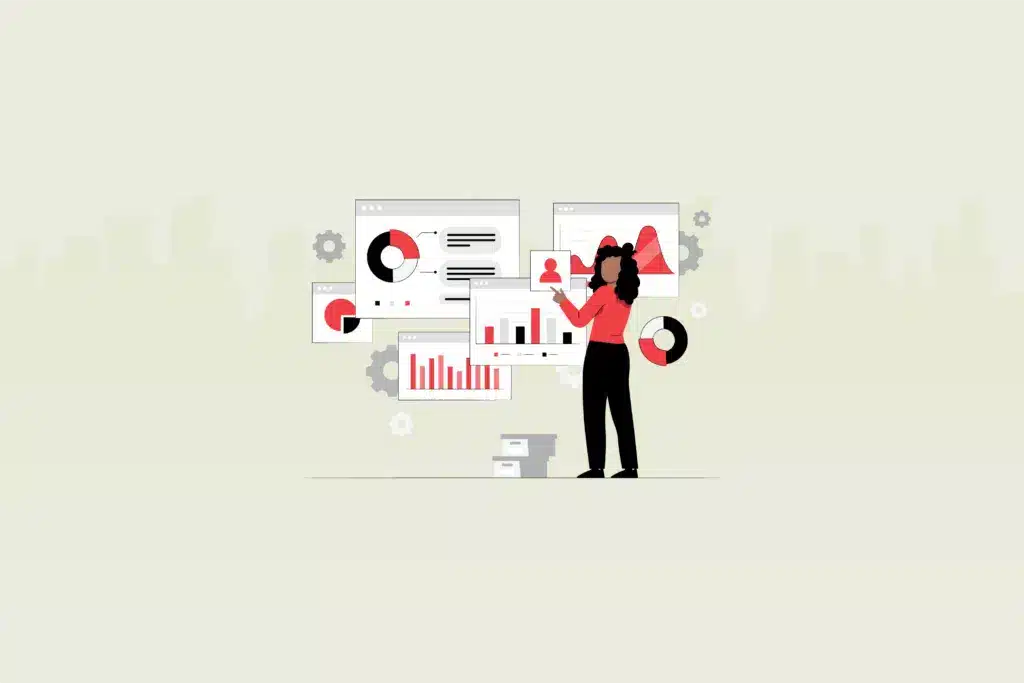The role of Logistics Manager has become increasingly vital in today’s rapidly evolving business landscape. As organizations expand their operations globally and adapt to the ever-changing demands of the market, the need for skilled professionals to oversee logistics and supply chain management has grown significantly.
According to recent industry analytics, the demand for Logistics Managers has witnessed a substantial upward trend, with a steady increase in hiring activity across various sectors. This surge in recruitment reflects the strategic importance placed on efficient and streamlined logistics operations by HR professionals and top-level executives, who recognize the direct impact logistics management has on overall business performance and customer satisfaction. In this context, it becomes crucial for HR professionals and CXOs to identify and evaluate candidates with the right skill set and experience. To assist in this endeavor, we have compiled a comprehensive set of interview questions specifically tailored for Logistics Manager roles, ensuring that you can make informed hiring decisions and secure the best talent for your organization.
Here are the top 60 Front Desk Receptionist interview questions to ask job applicants:
15 general interview questions for the Front Desk Receptionist
- Can you provide an overview of your experience and background in logistics management?
- How do you ensure effective coordination and communication between different departments involved in the supply chain?
- What strategies do you employ to optimize transportation and reduce costs while maintaining service quality?
- Can you describe a time when you successfully resolved a critical logistics issue or crisis? How did you handle it?
- How do you stay updated with industry trends and technologies to improve logistics operations?
- What metrics or key performance indicators do you track to measure the efficiency and effectiveness of logistics processes?
- Can you explain your approach to managing inventory levels and ensuring adequate stock availability without incurring excessive holding costs?
- How do you manage relationships with external suppliers and logistics service providers to ensure seamless operations?
- Tell us about a time when you had to negotiate contracts or agreements with vendors or third-party logistics providers. How did you approach it?
- How do you address challenges related to customs regulations, import/export compliance, and international trade logistics?
- Can you provide an example of how you have implemented process improvements or automation to enhance logistics efficiency?
- How do you prioritize competing demands and allocate resources effectively in a dynamic logistics environment?
- How do you handle unexpected disruptions, such as natural disasters or labor strikes, to minimize disruptions in the supply chain?
- Can you describe your experience in implementing sustainable and environmentally friendly logistics practices?
- How do you foster a culture of continuous improvement and innovation within your logistics team?
5 sample answers to general interview questions for the Front Desk Receptionist
- Can you provide an overview of your experience and background in logistics management?
Look for: A comprehensive overview of the candidate’s experience in logistics management, including their roles, responsibilities, and notable achievements.
Sample Answer: “I have over 10 years of experience in logistics management, having worked in various capacities within the field. In my previous role as a Senior Logistics Manager at ABC Company, I was responsible for overseeing end-to-end supply chain operations, including transportation, warehousing, and inventory management. During my tenure, I successfully implemented process improvements that resulted in a 20% reduction in transportation costs and a 30% increase in order fulfillment efficiency.”
- How do you ensure effective coordination and communication between different departments involved in the supply chain?
Look for: An understanding of the importance of cross-departmental collaboration and effective communication strategies to ensure smooth supply chain operations.
Sample Answer: “To ensure effective coordination and communication, I believe in fostering strong relationships and open lines of communication with stakeholders across departments. I regularly conduct cross-functional meetings to align objectives, share relevant information, and address any bottlenecks or challenges. Additionally, I leverage technology platforms like collaborative planning systems and real-time tracking tools to enhance visibility and facilitate seamless information flow between departments.”
- How do you manage relationships with external suppliers and logistics service providers to ensure seamless operations?
Look for: The ability to build and maintain strong partnerships with suppliers and service providers to optimize logistics operations.
Sample Answer: “Building and nurturing relationships with external suppliers and logistics service providers is crucial for ensuring seamless operations. I believe in establishing clear performance expectations, regular communication channels, and mutually beneficial agreements. For instance, at my previous company, I implemented quarterly business reviews with key suppliers to assess performance, address any issues, and identify opportunities for collaboration and process improvement. By fostering these relationships, we were able to enhance service levels, negotiate favorable pricing, and drive overall operational efficiency.”
- Can you describe a time when you successfully resolved a critical logistics issue or crisis? How did you handle it?
Look for: The candidate’s ability to handle high-pressure situations, think critically, and come up with effective solutions.
Sample Answer: “In a previous role, we faced a significant disruption in our transportation network due to a sudden labor strike at a key port. To mitigate the impact on our operations, I immediately activated our contingency plan, which involved rerouting shipments to alternative ports and leveraging additional carriers. I also coordinated closely with our internal teams and external partners to ensure real-time communication and minimize disruptions. Through these efforts, we were able to maintain delivery schedules, avoid customer delays, and successfully navigate the crisis.”
- How do you stay updated with industry trends and technologies to improve logistics operations?
Look for: Proactive efforts to stay informed about the latest industry trends, emerging technologies, and their potential impact on logistics management.
Sample Answer: “I believe in the importance of continuous learning and staying up-to-date with industry trends and technologies. I regularly attend logistics conferences, participate in webinars, and engage in networking events to gain insights from industry experts and thought leaders. Additionally, I actively follow relevant publications and subscribe to industry newsletters to stay informed about emerging technologies such as blockchain, artificial intelligence, and predictive analytics. By staying abreast of these developments, I can identify opportunities for process improvements and innovative solutions to enhance logistics operations.”
15 behavioral interview questions for a Front Desk Receptionist
- Describe a time when you had to handle a challenging logistics project with multiple stakeholders. How did you ensure effective coordination and collaboration?
- Can you share an example of a time when you implemented a cost-saving initiative in logistics operations? What strategies did you employ, and what were the results?
- Tell us about a time when you faced a sudden disruption in the supply chain. How did you react, and what steps did you take to mitigate the impact?
- Describe a situation where you had to negotiate with a difficult vendor or logistics service provider. How did you approach the negotiation, and what was the outcome?
- Can you give an example of a time when you identified a process inefficiency in logistics operations and implemented improvements? What were the challenges, and how did you overcome them?
- Describe a time when you successfully managed a tight deadline for a critical logistics project. How did you prioritize tasks and ensure timely completion?
- Tell us about a time when you had to make a tough decision related to logistics, considering both cost and customer satisfaction. How did you approach the decision-making process, and what were the results?
- Describe a situation where you had to resolve a conflict or disagreement among team members involved in logistics operations. How did you handle it, and what was the outcome?
- Can you share an example of a time when you effectively optimized warehouse operations to improve inventory accuracy and reduce carrying costs?
- Describe a situation where you had to implement new logistics software or technology. How did you manage the implementation process, and what were the key outcomes or benefits?
- Tell us about a time when you had to manage a logistics project with a limited budget. How did you ensure cost control while meeting project objectives?
- Can you give an example of a time when you identified a potential risk or vulnerability in the supply chain and implemented preventive measures? What were the results?
- Describe a situation where you had to manage logistics operations during a period of rapid growth or expansion. How did you handle the increased volume and scale while maintaining operational efficiency?
- Tell us about a time when you had to resolve a customer complaint or issue related to logistics. How did you address the situation and ensure customer satisfaction?
- Can you share an example of a time when you led a cross-functional team to successfully execute a complex logistics project? How did you ensure effective collaboration and achieve project objectives?
5 sample answers to behavioral interview questions for the Front Desk Receptionist
- Describe a time when you had to handle a challenging logistics project with multiple stakeholders. How did you ensure effective coordination and collaboration?
Look for: The ability to manage complex logistics projects involving various stakeholders while ensuring effective coordination and collaboration.
Sample Answer: “In a previous role, I led a major logistics project that involved multiple stakeholders, including suppliers, carriers, and internal departments. To ensure effective coordination, I established regular cross-functional meetings to align objectives, address concerns, and facilitate information sharing. Additionally, I utilized project management tools to track progress, set clear deliverables, and assign responsibilities. By fostering open communication channels and encouraging collaboration, we successfully completed the project within the specified timeline, meeting all stakeholder expectations.”
- Can you share an example of a time when you implemented a cost-saving initiative in logistics operations? What strategies did you employ, and what were the results?
Look for: The ability to identify and implement cost-saving initiatives within logistics operations, demonstrating strategic thinking and financial acumen.
Sample Answer: “In a previous role, I identified an opportunity to optimize our transportation costs by implementing a vendor consolidation program. I conducted an in-depth analysis of our shipping patterns and identified vendors with overlapping delivery routes. By consolidating shipments with select vendors and renegotiating contracts, we achieved significant cost savings without compromising service levels. The initiative resulted in a 15% reduction in transportation expenses within the first year, contributing to substantial annual cost savings.”
- Tell us about a time when you faced a sudden disruption in the supply chain. How did you react, and what steps did you take to mitigate the impact?
Look for: The ability to handle unexpected disruptions in the supply chain, demonstrating adaptability, problem-solving skills, and the capacity to minimize operational impact.
Sample Answer: “During a period of severe weather conditions, our transportation network experienced a major disruption, causing delays in product deliveries. To mitigate the impact, I immediately initiated an alternative routing plan, leveraging alternative transportation modes and identifying backup suppliers. I communicated proactively with customers to manage expectations and provided regular updates on the progress. By implementing these measures, we were able to minimize delivery delays, maintain customer satisfaction, and recover quickly from the supply chain disruption.”
- Describe a situation where you had to negotiate with a difficult vendor or logistics service provider. How did you approach the negotiation, and what was the outcome?
Look for: Strong negotiation skills, the ability to handle difficult situations, and achieve favorable outcomes while maintaining positive relationships with vendors or service providers.
Sample Answer: “In a previous role, I encountered a situation where a vendor consistently failed to meet our agreed-upon service levels. I initiated a negotiation process, focusing on collaborative problem-solving and establishing shared goals. I presented data highlighting the performance gaps and discussed potential areas for improvement. Through open dialogue and a solution-oriented approach, we were able to renegotiate the terms of the contract, ensuring improved service levels and maintaining a positive working relationship.”
- Can you give an example of a time when you identified a process inefficiency in logistics operations and implemented improvements? What were the challenges, and how did you overcome them?
Look for: The ability to identify process inefficiencies, take initiative in implementing improvements, and overcome challenges to drive operational excellence.
Sample Answer: “In a previous role, I noticed a recurring issue of delays and errors in order processing due to manual data entry. I proposed implementing an order management system with automated data integration. The main challenge was resistance to change from team members accustomed to the existing manual processes. To overcome this, I conducted training sessions to highlight the benefits, addressed concerns, and provided ongoing support during the transition phase. As a result, we significantly reduced processing errors, improved order accuracy, and streamlined the overall logistics operations.”
15 personality interview questions for the Front Desk Receptionist
- How do you handle pressure and tight deadlines in a logistics environment?
- Describe your approach to managing and prioritizing multiple tasks and projects simultaneously.
- How do you adapt to changes in the logistics industry, such as new regulations or emerging technologies?
- Can you tell us about a time when you had to make a difficult decision that required balancing short-term goals with long-term logistics strategies?
- How do you foster collaboration and teamwork within your logistics team?
- Describe a situation where you demonstrated strong leadership skills in a logistics setting.
- How do you ensure attention to detail and accuracy in your work as a Logistics Manager?
- Can you share an example of a time when you demonstrated excellent problem-solving skills in resolving a logistics-related issue?
- How do you stay organized and maintain effective time management in your logistics responsibilities?
- Can you describe a time when you had to influence and persuade others to adopt a new logistics process or system?
- How do you stay updated with industry trends and best practices in logistics management?
- Can you tell us about a time when you had to mediate conflicts or resolve disagreements within your logistics team?
- Describe your communication style and how you ensure effective communication within your logistics team and with external stakeholders.
- How do you promote a culture of continuous improvement and innovation within your logistics team?
- Can you share an example of a time when you demonstrated resilience and adaptability in a challenging logistics situation?
5 sample answers to personality interview questions for Front Desk Receptionist
- How do you handle pressure and tight deadlines in a logistics environment?
Look for: The candidate’s ability to manage stress, stay organized, and maintain productivity in high-pressure situations.
Sample Answer: “In high-pressure situations with tight deadlines, I remain calm and focused by prioritizing tasks and creating a structured plan. I break down complex projects into smaller manageable tasks, assign clear deadlines, and delegate responsibilities to my team members. I also maintain open lines of communication to ensure everyone understands the urgency and can provide support when needed. By staying organized, managing time effectively, and leveraging teamwork, I consistently meet deadlines and deliver results.”
- Describe your approach to managing and prioritizing multiple tasks and projects simultaneously.
Look for: The candidate’s ability to multitask, prioritize effectively, and maintain attention to detail.
Sample Answer: “When faced with multiple tasks and projects, I start by assessing their importance, deadlines, and impact on overall logistics objectives. I prioritize based on criticality and impact, ensuring that time-sensitive tasks are given immediate attention. I use productivity tools and systems to track progress, set reminders, and maintain visibility into all ongoing projects. Additionally, I regularly review and adjust priorities as necessary to ensure efficient use of time and resources while maintaining attention to detail.”
- Can you tell us about a time when you had to make a difficult decision that required balancing short-term goals with long-term logistics strategies?
Look for: The candidate’s ability to make strategic decisions that align with long-term objectives while addressing immediate needs.
Sample Answer: “In a previous role, we faced a situation where a key logistics provider suddenly increased their service fees. While the short-term impact would have been significant cost increases, I recognized the need to consider our long-term logistics strategy. After thorough analysis and negotiation, I decided to explore alternative providers and diversify our logistics network. This decision aligned with our long-term goal of reducing reliance on a single provider and mitigating future risks. Although it involved some initial disruption, it ultimately improved our overall logistics resilience and reduced our vulnerability to similar cost shocks.”
- How do you foster collaboration and teamwork within your logistics team?
Look for: The candidate’s ability to promote teamwork, encourage collaboration, and create a positive work environment.
Sample Answer: “I believe in creating a collaborative work environment where every team member feels valued and encouraged to contribute their ideas. I promote open communication, actively listen to team members’ input, and encourage cross-functional collaboration. I organize regular team meetings to discuss goals, challenges, and potential improvements. Additionally, I provide opportunities for skill development and recognize individual and team achievements. By fostering collaboration and teamwork, we create a positive work culture that enhances efficiency, innovation, and job satisfaction.”
- Can you share an example of a time when you demonstrated resilience and adaptability in a challenging logistics situation?
Look for: The candidate’s ability to adapt to unforeseen circumstances, handle setbacks, and find creative solutions.
Sample Answer: “During a major transportation strike that disrupted our delivery schedule, I had to quickly adapt and find alternative solutions. I worked closely with our logistics team to identify backup carriers and reroute shipments to minimize delays. I also communicated transparently with customers, managing their expectations and offering alternative delivery options where feasible. By maintaining a resilient mindset, collaborating closely with the team and thinking creatively, we successfully navigated the challenging situation, minimized disruptions, and maintained customer satisfaction.”
When should you use skill assessments in your hiring process for Front Desk Receptionist?
Skill assessments should be used in the hiring process for Logistics Manager when you want to evaluate the candidate’s practical skills and abilities relevant to the position. These assessments provide an objective measure of a candidate’s capabilities, helping you make informed hiring decisions based on concrete evidence rather than solely relying on resumes and interviews.
Assessments are important because they offer a standardized way to evaluate candidates’ skills, ensuring that the selected candidate possesses the necessary qualifications for the role. They provide valuable insights into the candidate’s proficiency in areas such as supply chain management, inventory control, transportation coordination, problem-solving, data analysis, and software proficiency.
Various assessments can be used to assess the skills of Logistics Managers. These may include:
- Case studies or simulations
Candidates can be presented with real or hypothetical logistics scenarios and asked to analyze the situation, make decisions, and propose appropriate solutions.
- Technical assessments
These assessments evaluate specific technical skills related to logistics, such as proficiency in using logistics management software, understanding of warehouse operations, or knowledge of transportation regulations.
- Behavioral assessments
These assessments focus on evaluating a candidate’s behavioral traits relevant to logistics management, such as decision-making abilities, adaptability, problem-solving skills, and ability to work under pressure.
- Analytical tests
These assessments assess a candidate’s analytical and quantitative skills, which are crucial for data analysis, forecasting, and optimization in logistics operations.
By incorporating skill assessments into the hiring process, you can gain a deeper understanding of candidates’ capabilities, assess their fit for the specific logistics requirements of your organization, and ultimately make more informed hiring decisions.
Use our interview questions and skill tests to hire a talented Front Desk Receptionist
Unlock the potential of your hiring process with Testlify’s comprehensive skill assessments and interview questions specifically designed for Front Desk Receptionists.
Our extensive test library offers a wide range of assessments, including cognitive function, personality, situational judgment, programming, and more. By leveraging these assessments, you can objectively evaluate candidates’ abilities, ensuring you shortlist the most talented individuals efficiently.
To further enhance your hiring process, we invite you to book a free 30-minute live demo. Our expert team will guide you through the platform, showcasing relevant skill tests tailored to your hiring needs. With our support, you can streamline candidate selection, saving valuable time and resources.
Ready to find the perfect fit for your Front Desk Receptionist role? Testlify provides the tools you need to make informed hiring decisions. Explore our skill assessments and interview questions today to uncover exceptional talent for your team.







